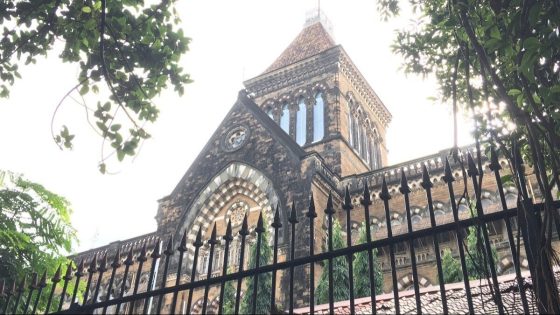The Nagpur bench of the Bombay High Court on Wednesday upheld the death penalty awarded to a 45-year-old labourer who killed his own son, sister, brother-in-law, niece and sister’s mother-in-law with a crowbar in June 2018.
The bench of Justices Vinay Joshi and MW Chandwani said that the convict, Vivek Palatkar, in total disregard to humanity, gender and relations, murdered his own kin with a premeditated plan.
“He has not even spared his minor son or minor niece. His behaviour was quite cruel, rude and in an arrogant manner, he asked the trial judge to impose the death penalty. Post conviction, while in jail, he attacked jail inmates. These instances persuade us to hold that he is beyond improvement and there are no chances of reformation,” the bench noted in its order.
THE CASE
Four years before the multiple murders, Vivek Palatkar was convicted by a trial court for killing his wife in 2014. While he was in jail, his two children – a daughter and a son – lived with his sister and her family. He was, however, acquitted by the High Court later.
On his release from the jail, Palatkar’s brother-in-law asked him to repay the expenses that he incurred for his litigation and also for looking after his children. This did not go down well with Palatkar, who felt humiliated.
Subsequently, on June 10, 2018, Palatkar visited his sister’s house with a crowbar which he had hidden in a flower bed. Around midnight, he killed his brother-in-law, his own sister, her mother-in-law, her daughter and his own son. He then fled to Ludhiana in Punjab, where he was arrested two days later.
THE VERDICT
The bench in its 151-page judgement said that Palatkar was an “evil to society” as he killed his own and his sister and her entire family in a pre-planned and cold-blooded manner.
“Though initially the accused had a motive to kill his brother-in-law, but his entire family was done to death. It shows that emotion or mercy has no place in the mind of the accused. In view of the violent nature of the accused, we perceive danger to the lives of the two children (his own daughter and sister’s son, who testified against him) from the accused. Moreover, the cruel and merciless tendency is a danger to society and thus, he is not fit to live in a civilised society,” the court said.
Hence, it said that the case fell within the rarest of the rare category warranting a death sentence.
The court noted that the prime evidence against the convict was that of his own daughter and his sister’s son, both of whom were minors and had survived the incident. It held that though their evidence was not free from doubt, the other circumstantial evidence brought on record by the prosecution indicated his guilt.
The bench took note of the medical evidence which showed the intensity of the attack on the victims.
“Except Kamlakar (his brother-in-law), all were female, aged old or minor children. At the relevant time, all were in fast sleep, meaning thereby totally in a defenceless position. Rather, the accused choose the midnight time to avoid possible resistance from a male member, i.e. Kamlakar. Though the father and brother are supposed to be protectors, the accused proved to be a life-taking devil,” the bench observed.
It said that it was disturbed by the fact that the convict completely disregarded the relationship, emotions and family bond and committed the murder of his own sister, her family and particularly of his own son.
“The act of the accused was totally in disregard to the favours done by Kamlakar, Archana and their family. Archana and Kamlakar gave shelter to the minor children of the accused. In total disregard to the said obligation, the accused mercilessly killed the entire family members who had trust in him. The act of killing your own kin shows unkind, cruel and heartless nature,” the bench held.
It further stated that the offence committed by the accused was neither under duress nor on provocation and yet innocent lives were snuffed out by him by violent indiscriminate assault.
“It was a cold-blooded, pre-planned murder. The act was extremely barbaric, cruel and brutal. The accused killed his own sister, her family and, more particularly, his own child, barely aged 4 years. The act was heartless, in total disregard to human relationships. It has not only shocked the judicial conscious, but, the consciousness of society,” the court underscored.
It was a matter of indignation that women and innocent children were silenced in a brutal manner while they were sleeping, the bench lamented.
“The act of the accused has put a serious dent in family ties and relationships. Innocent children were made to meet the maker untimely despite their right to see the beautiful world. Two surviving children were made shelter-less despite no fault on their part,” the judgment said.
In view of the facts of the case, the court held that the case fell squarely within the exceptional category and the past conduct of the accused also indicated that he was beyond reformation and rehabilitation.
“The accused would be a menace or threat to society. In our considered view, the case undoubtedly falls in the ‘Rarest of Rare’ category, warranting capital punishment. We have thoughtfully considered the case from every possible angle, and opinion that any other kind of punishment than the death penalty would be totally disproportionate and would amount to injustice,” the court opined.
With these observations, it upheld the death sentence imposed on the convict.
Source Agencies



